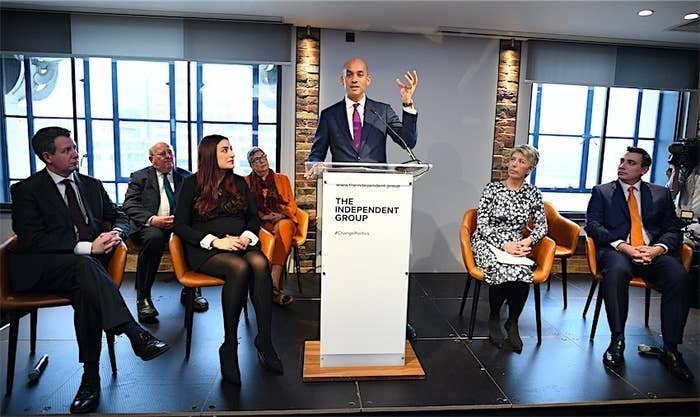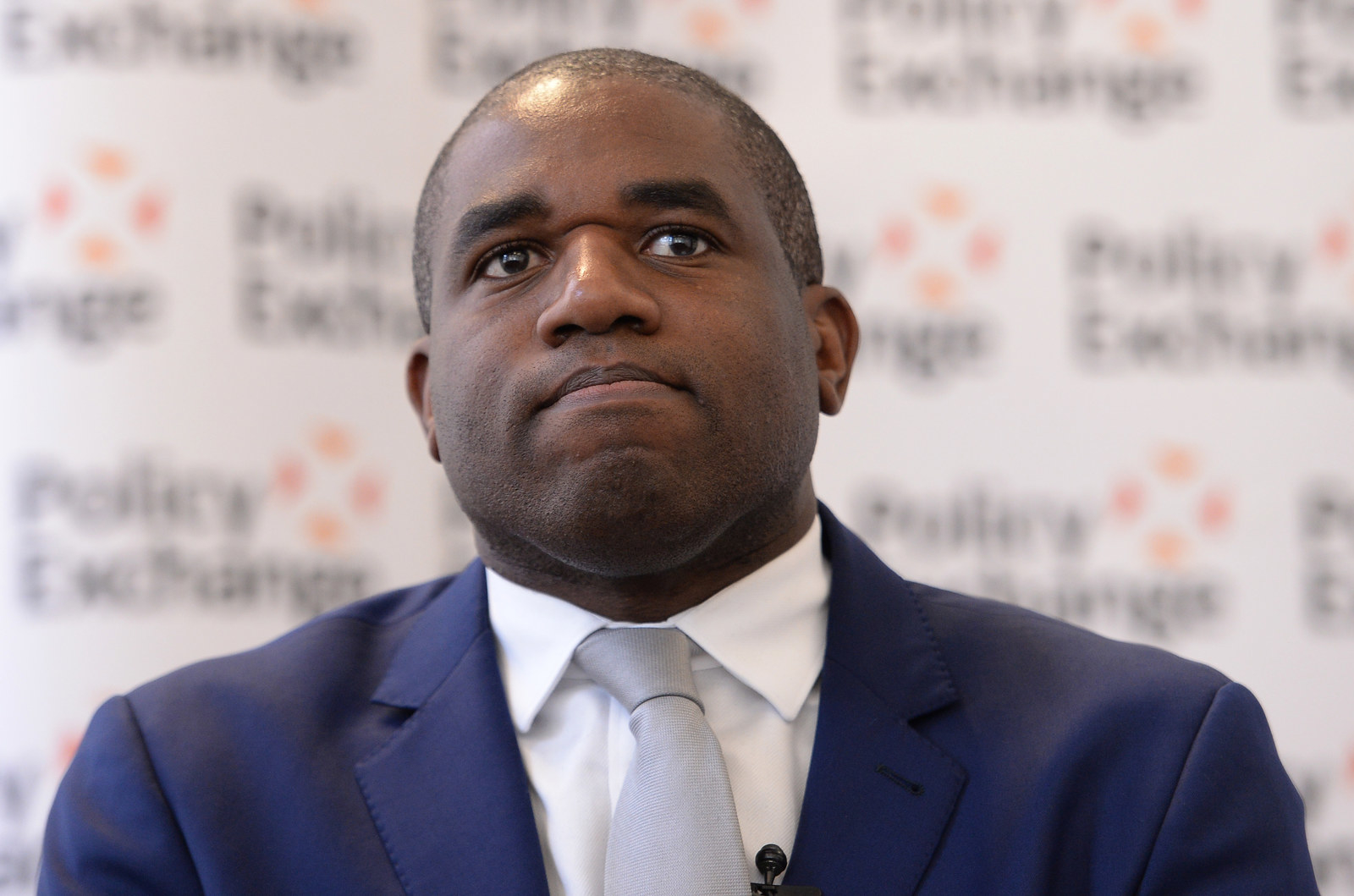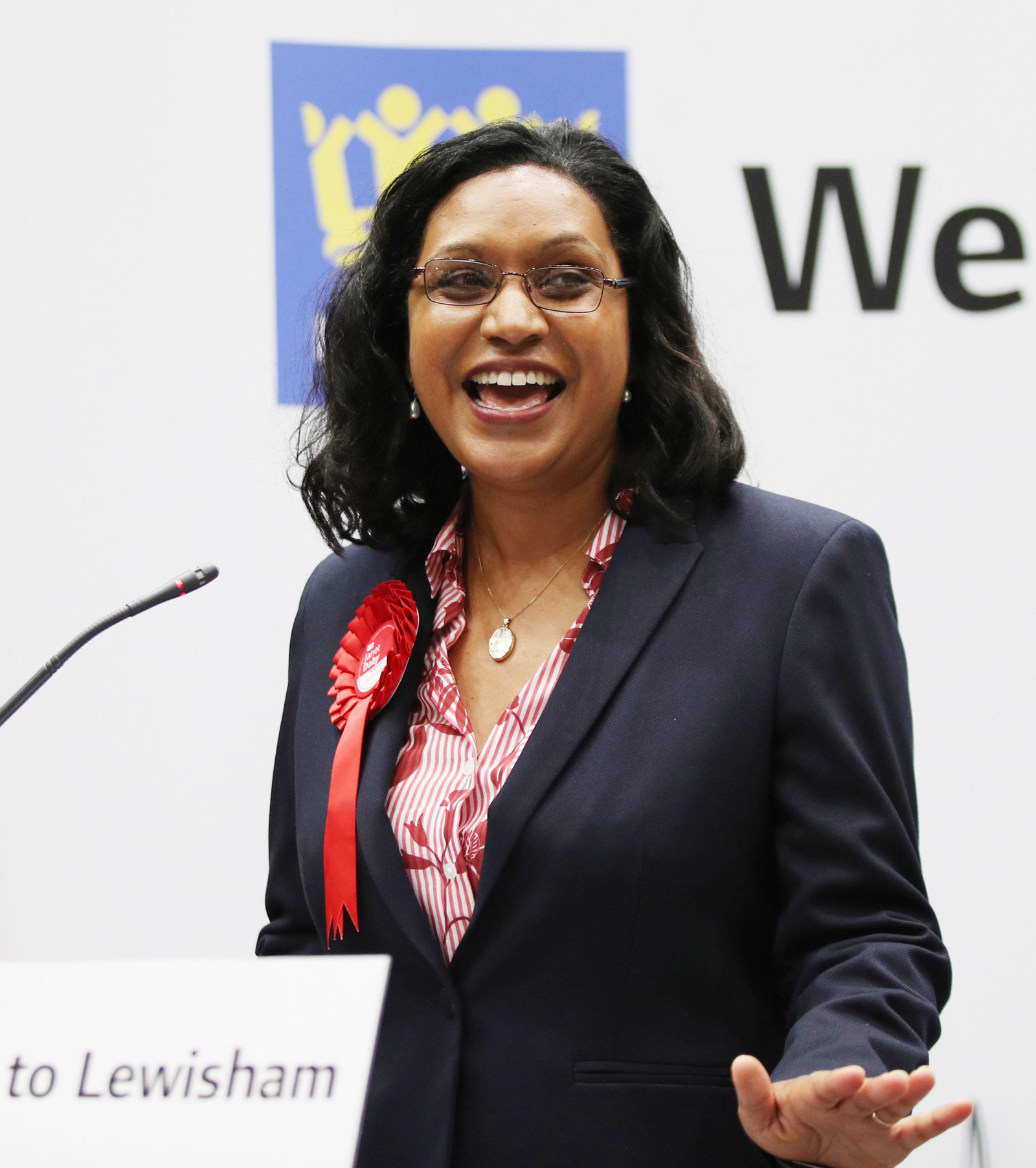
Labour’s leadership is facing calls to put measures in place to ensure that female, LGBT, and ethnic minority MPs at risk of deselection aren’t replaced with straight white men.
MPs and campaigners have warned Labour to protect progress on diversity, amid fears of mass deselections within the Parliamentary Labour Party (PLP) as local branches now have more power to get rid of sitting MPs.
The party has recently lost one Jewish woman in Luciana Berger, one mixed race MP in Chuka Umunna, and two other women – Ann Coffey and Angela Smith – who are part of the “gang of seven” who dramatically quit the party on Monday. They were followed by another female MP, Joan Ryan, on Tuesday night.

Several of the MPs were facing the threat of deselection from their Constituency Labour Parties (CLPs), allegedly over their criticisms of Jeremy Corbyn.
Earlier this month, Berger’s CLP tabled – and then withdrew – two non-binding confidence motions against her which drew attention to her criticism of the Labour leadership. In Streatham, after a tightly-fought battle between rival factions, members voted to move to an all-member meeting structure, widely seen as a boost to the Corbynite faction of Umunna’s CLP, who had been moving to deselect him. Ryan had already lost a non-binding confidence vote against her in September.
Party insiders fear Labour’s progress on representation could move backwards if the party does not commit to putting measures in place to ensure that sitting women, LGBT, and BAME MPs are not largely replaced by white, straight men, who are overrepresented in both the party and in parliament.
On its own website, Labour proclaims to be “the party of equality,” trumpeting its “strong record on progressing women’s rights and freedoms that we can be proud of.”
The party is yet to confirm whether candidates will be selected on an all-women shortlist to stand in Smith, Coffey, Ryan, and Berger’s seats. However, the party has said that its candidate in Peterborough will be selected from an all-women shortlist, after current MP Fiona Onasanya was jailed for perverting the course of justice.
Under longstanding party rules, all Labour-held CLPs conduct a so-called trigger ballot at some point during the course of each parliament, in between general elections, in which each affiliated branch of an MP’s local party decides whether to keep them on or trigger a full selection process.
The party has not announced a timetable for when the ballots could take place, but sources said this is likely to be discussed at a meeting of the Labour’s ruling body, the National Executive Committee (NEC), in March.
This time more than 100 MPs could face so-called trigger ballots, which, if they lose, will see them face a full selection contest.
In most cases it is expected that it will be so-called moderate MPs who are “triggered”, after an increase of members who are loyal to Jeremy Corbyn joined their CLPs. They would be likely to then fight selection battles against pro-Corbyn candidates.
One senior Labour moderate told BuzzFeed News they believed just under two thirds of the MPs most at risk of facing deselection were women, despite women making up around 45% of the PLP.
Previously, MPs would only face a reselection contest if 50% of a local branches and affiliated trade unions voted to trigger one. However, the rules were changed at last year’s Labour conference in September to make it easier to deselect sitting MPs, with 65% of delegates voting to lower the threshold to 33%.This was seen by some Labour MPs as the beginning of an attempt to "purge" the party of Corbyn’s critics.
Both MPs and equality campaigners have expressed concerns that the trigger ballot process could lead to a less diverse Parliamentary Labour Party (PLP) come the next election.

“This is actually something that I raised with the general secretary of the Labour Party, the old [Iain McNicol], and the new [Jennie Formby] at women’s PLP meetings and elsewhere,” Manchester Central MP Lucy Powell told BuzzFeed News.
Without ensuring all women shortlists were in place for contests where a female MP had been triggered, Powell said, Labour risked stalling its progress on equality, or even slipping backwards. “It’s pretty obvious to me, just look at past experience, look how hard it’s been for women to win selections… without positive discrimination,” she said. “I’ve asked for those changes to be brought in as part of any trigger process, and that wasn’t forthcoming.”
“There’s a very serious risk that if there are a number of trigger ballots brought into effect, we could well see a reduction in the number of women MPs,” Powell added.
“It’s something we’ve always got to be mindful of - we’ve made a lot of progress over the last 20 years, we have clear targets, procedures, other support, and so on, in place to ensure we do increase the diversity of PPCs and MPs, but you can’t take the foot off that throttle at any point or you do see it going backwards. You can’t be complacent at all.”
A Labour Party source told BuzzFeed News: "Reselection processes aren't new so there's no logical basis for suggesting we would be going backwards."
However, Labour MPs said there was confusion as to what procedures were currently in place to stop female MPs being replaced by men, with members receiving mixed messages from the party’s leadership.

“I also specifically raised this issue with Jennie Formby at a Women’s PLP meeting and her response was that we already have a system in place for ensuring that female Labour MPs and councillors are not replaced by men,” Heywood and Middleton MP Liz McInnes told BuzzFeed News. “I am sure that I have not misremembered this - I am confident that that is what she said to me at that time.
“In practice I don’t think she is correct as I was made aware of a female deputy leader of a nearby council being deselected in favour of a man just this week.”
Labour did not respond when asked about the perceived confusion over what system the party had in place to stop female politicians being replaced by men.
Trigger ballots threaten not just Labour’s gender diversity, but also could bring down the number of Labour MPs in parliament who identify as Black, Asian, or from another ethnic minority background.

Several Jewish MPs including Louise Ellman and Ruth Smeeth could be at risk, as well as black Labour veteran MP David Lammy, who has already been threatened with deselection by his local party. Labour could also see a drop in its LGBT MPs, with Stephen Twigg and Angela Eagle, in the firing line.
Labour sources pointed out that equality law means that while all-women shortlists are lawful, the party is not allowed to implement BAME or LGBT-only shortlists, although in some constituencies this can happen naturally. In a 2018 by-election in Lewisham East, for example, Labour members ended up selecting a candidate from a shortlist of BAME women after Heidi Alexander stepped down to take a job at City Hall.
Campaigners said that the current list of Prospective Parliamentary Candidates (PPCs) demonstrates that the party is not doing enough to encourage people from different backgrounds to stand.

They also pointed out that while Labour’s gender balance in terms of parliamentary candidates was impressive, many of those had been selected in less “winnable” seats.
While almost 70% of Labour’s current PPCs are women, out of a list of 101, only eight are identified as BAME, only three of these BAME women, and only three identify as LGBT.
A Labour source disagreed, saying selections that have taken place are all in key marginal seats, and, they said, “are by no means unwinnable.” They also pointed to the success of Labour’s Jo Cox Women in Leadership training programme, which has been running since 2017, and said the party is working to establish a Bernie Grant Leadership Programme for BAME members, which will be recruiting soon.
But some in Labour say more needs to be done to ensure that the party’s candidates are more reflective of society as a whole.
“The Labour party exists to fight for equality and has always led the way on giving marginalised groups real political power through voices in Parliament,” LGBT Labour co-chair Melantha Chittenden told BuzzFeed News. “With the new rules on the triggering and deselection of MPs coming into force this year, we must ensure as a party that we preserve and extend the diverse representation of our elected representatives.
“We are currently celebrating LGBT History month and the advances in equal rights that have been made over the years. These advances happened because the Labour LGBT members of parliament fought for them, but these voices are at risk.
“The serious lack of diversity in the recent selections of over 100 candidates in the most marginal seats show that we cannot take the gains we have previously made for granted. The party must act now to ensure that those that represent us reflect the country we seek to serve.”
A Labour Party spokesperson said: “The Labour Party has more women MPs and more BAME MPs than all other political parties combined and we are committed to improving diverse representation at all levels of the Party.
“CLPs cannot currently conduct trigger ballots. There is no reselection process underway.”
BuzzFeed News approached BAME Labour for comment on this story, but did not receive a response.
